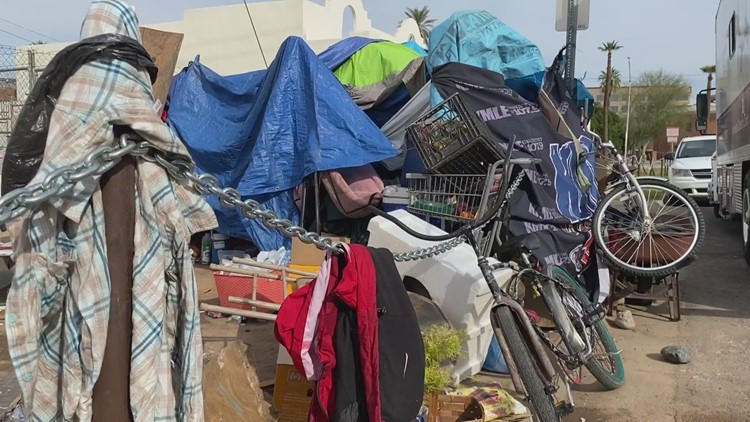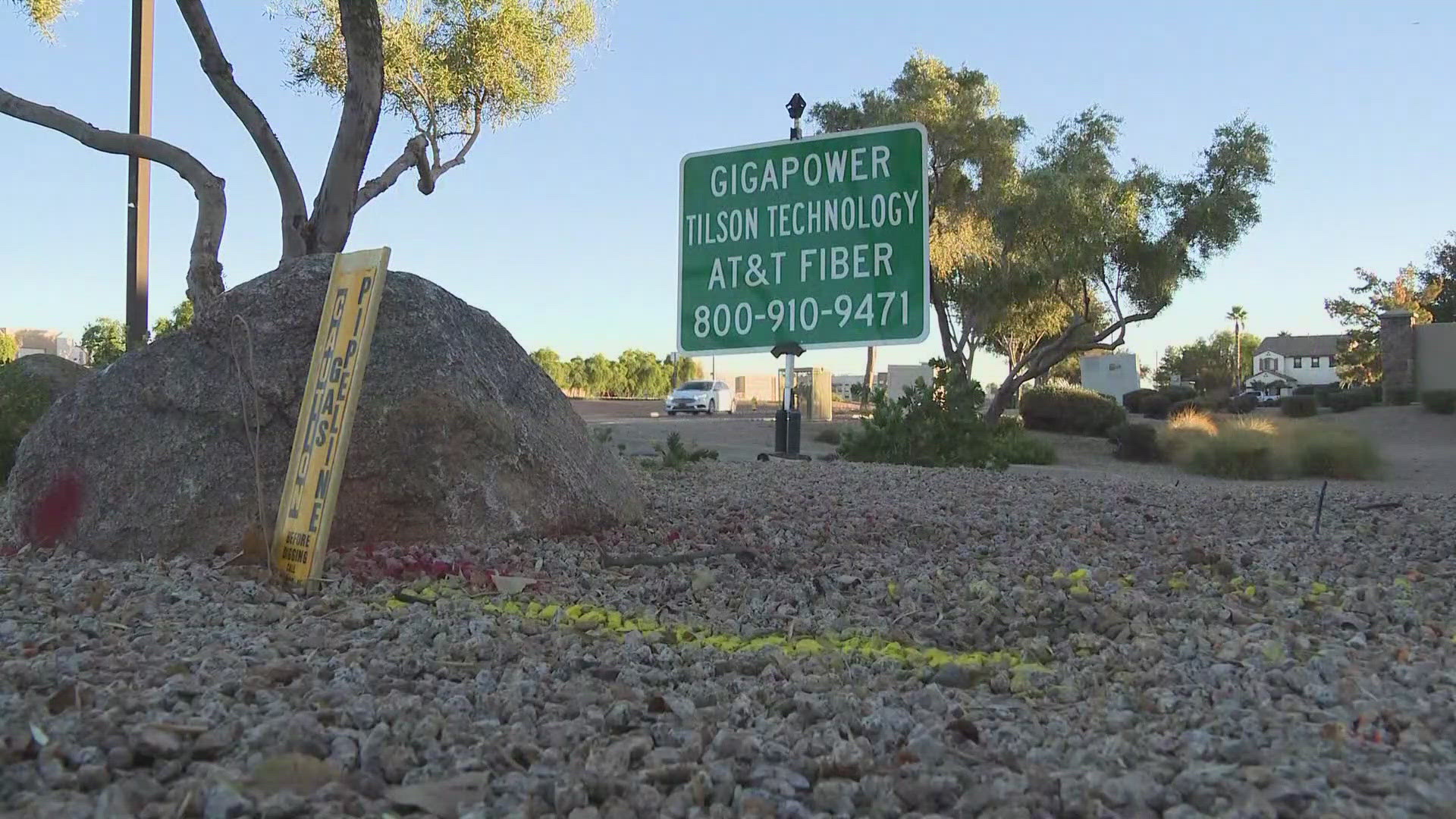TEMPE, Ariz. — Valley cities are cracking down on urban camping — a practice often tied to Arizona's homelessness crisis.
Some cities, like Mesa, are adopting new laws against camping on city land. But Tempe has had one such law on the books since the late 90s and on Tuesday announced that it will be "implementing strict enforcement" of that law.
But what is going to change with this stricter approach?
By Tempe's definition, urban camping includes "burning a fire, carrying on cooking activities, storing personal belongings, laying down bedding for sleeping, using tents or temporary structures for shelter, sleeping or storing of personal belongings."
If cited, a person could face up to six months in prison and/or a fine of up to $2,500.
"This isn't a new ordinance for the city of Tempe, it's just a recommitment to our community," Community Health and Human Services Director Tim Burch told 12News. "We have been enforcing it, we will continue to do so as one of the tools in our toolbox for addressing homelessness in our community. We will continue to lead with compassion."
Burch said that the new approach wouldn't rely on additional police officers, or increased funding for his department. Instead, the city is tightening the windows people will have to move or take down their encampments.
Previously, if someone was found to be camping on city land, they were given 24 hours to comply with orders to move, Burch said. The stricter guidelines now mean that people will only have a few hours. Burch did not specify exactly how long that would be.
While critics have accused similar laws of criminalizing homelessness, Burch stressed that the city's goal was to help people get back on their feet. He said it's standard practice to try to connect people with homeless outreach services before falling back on a citation.
Tempe spent $72 million on affordable services and homelessness outreach in 2023. Since then, the reported number of people experiencing homelessness has dropped from 406 to 266.
Since the election, Arizona cities are under more pressure to visibly enforce these ordinances. Because of the recently passed Proposition 312, cites would be required to pay back property owners for damages related to urban camping if enforcement was found to be lacking.
Burch urged potential critics of the new approach to consider those pressures.
"It's coming to recognize that the City of Tempe as a local government has to balance the needs of the entire community, both our unhoused neighbors and our property owners and business owners here in the community," Burch said. "And really, a lot of this focus is because of forces beyond the control of our community."
You can find more resources and information on the city's outreach program through Tempe's Community Health and Human Services Department webpage.



